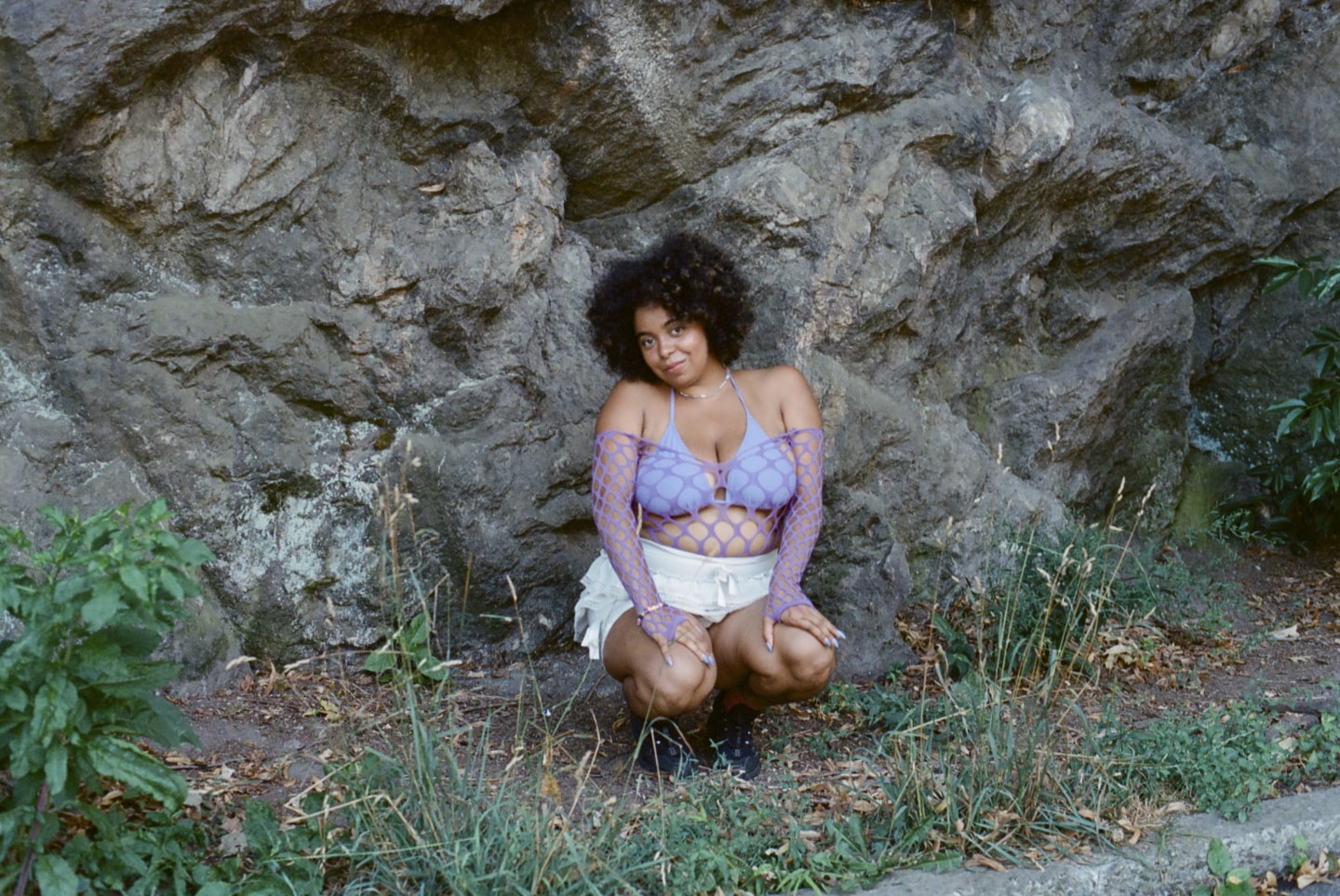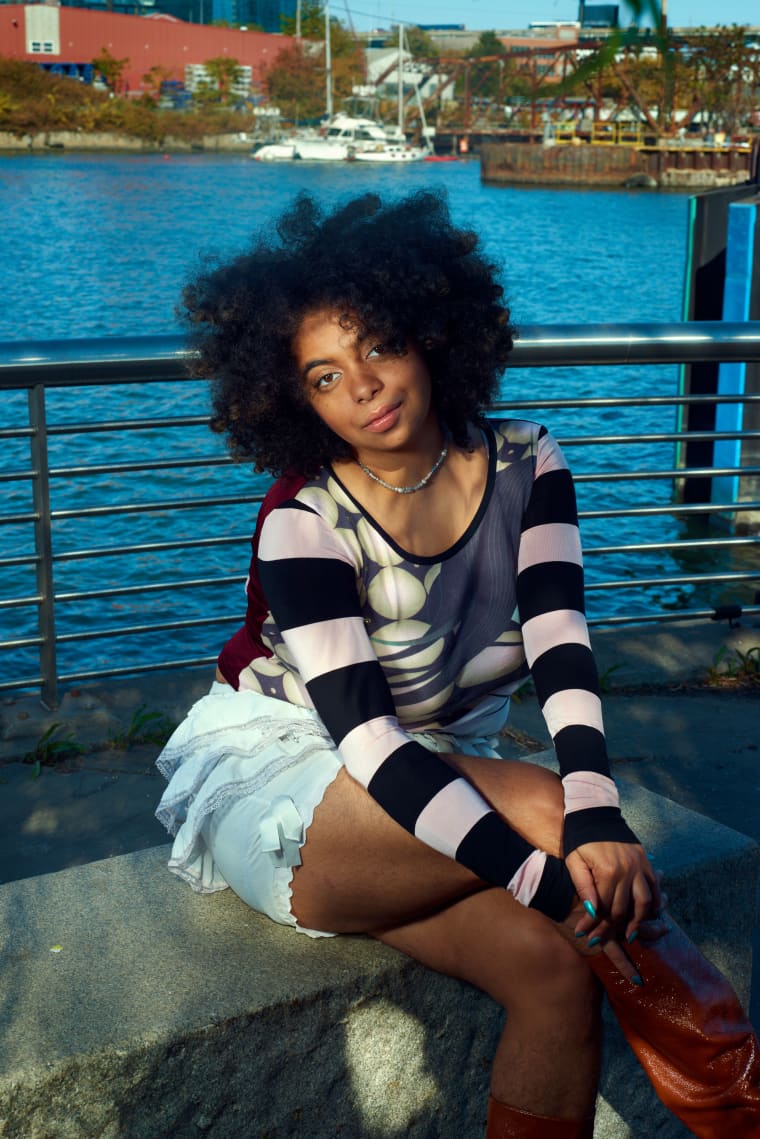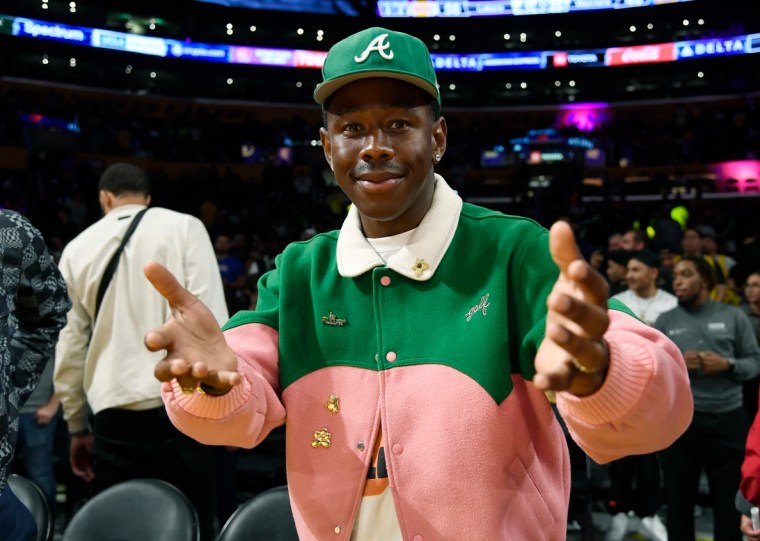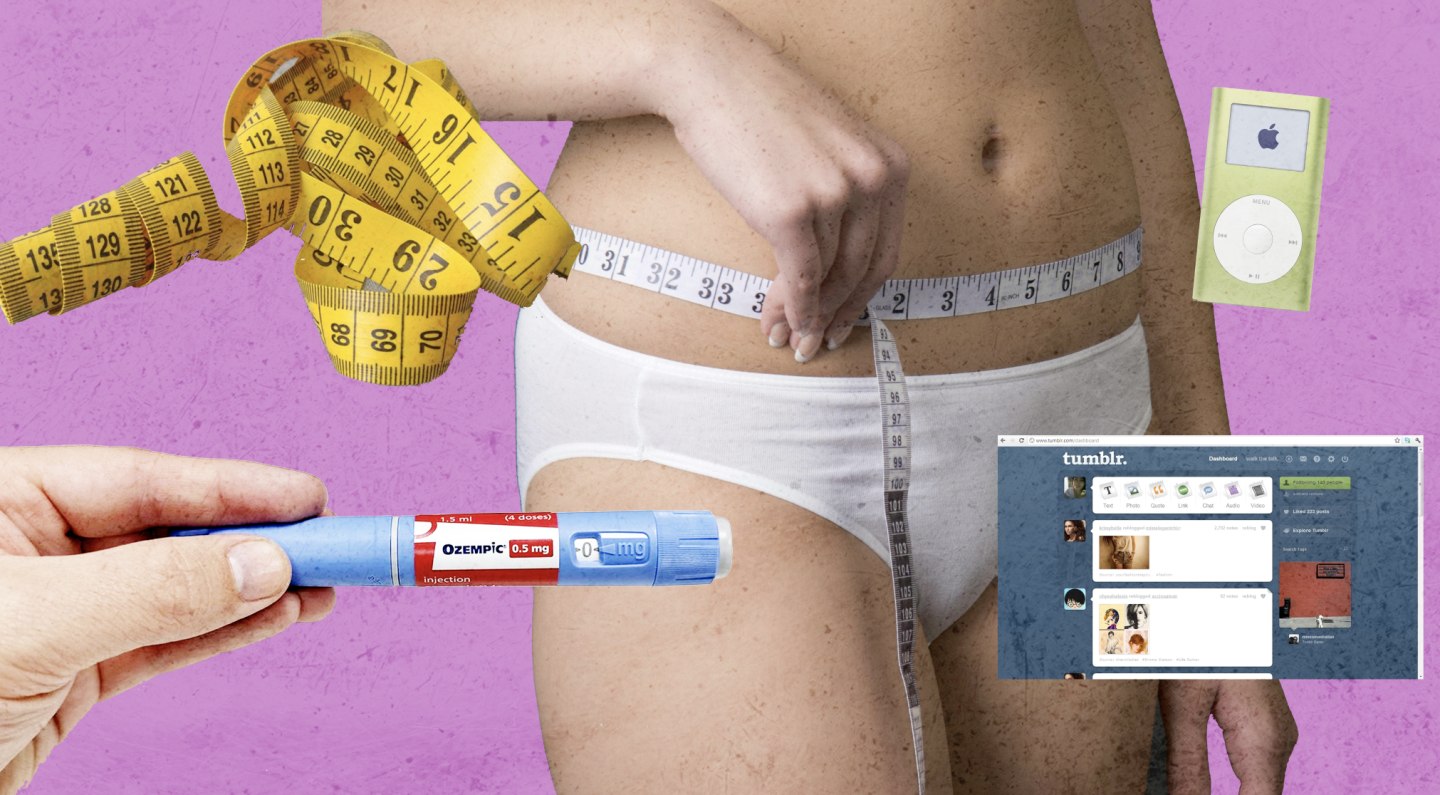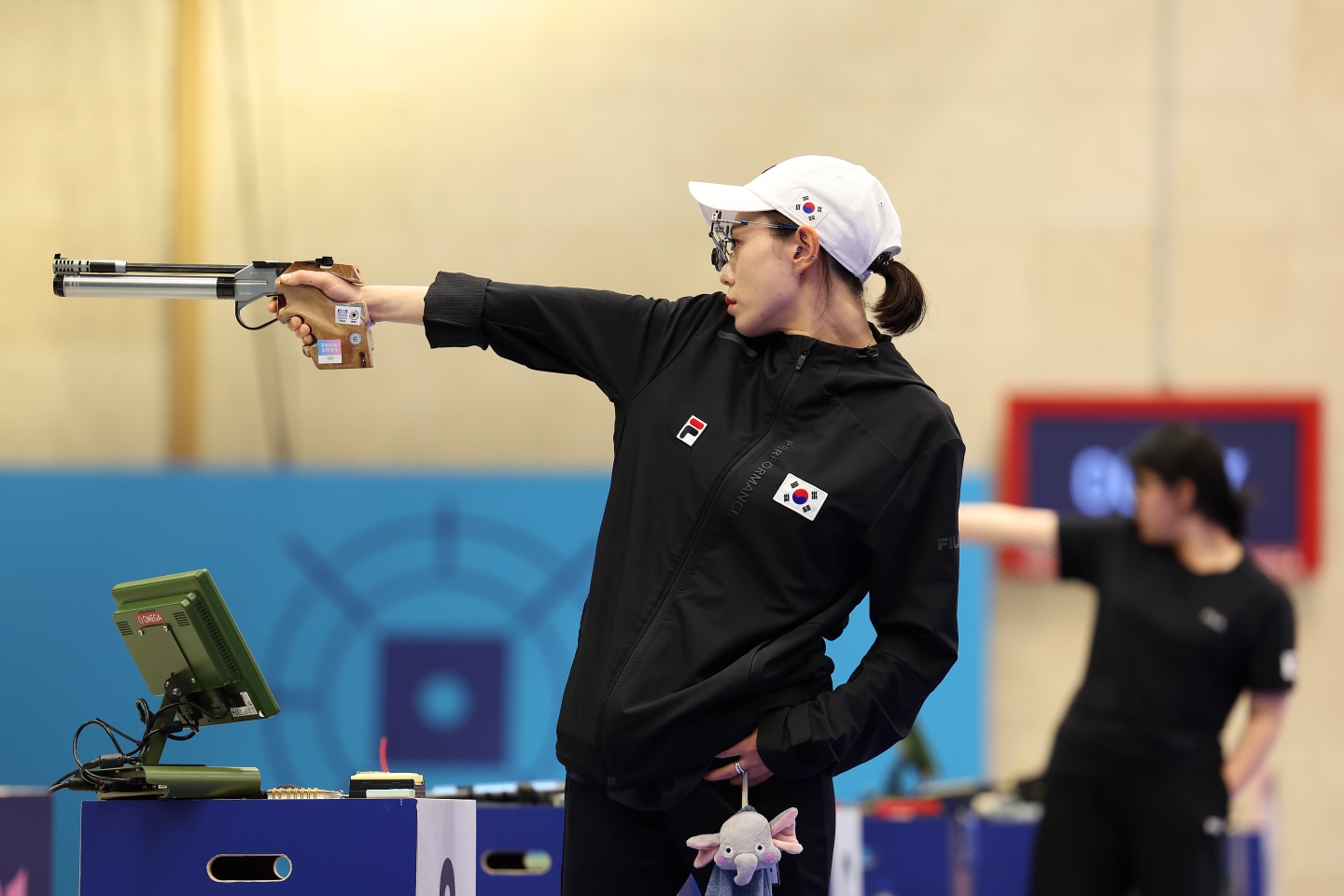Candace Camacho doesn’t go to church anymore, but the field of warm spiritual energy that surrounds her is evident in both her soulful and stylistically striking music as duendita and her presence in person. She arrives early to Sonbul — an old Brooklyn café recently converted into a Korean restaurant — in a stretchy blouse and big sunglasses, greeting me with an open smile.
She’s here to discuss the mind is a miracle, the long-awaited follow-up to her 2018 debut LP, direct line to my creator, which received rave reviews for both its messy vulnerability and clean composition. Following its release, Camacho performed the record live across the country, though she later had to step back from music after a period of instability led to a mental health crisis for which she was ultimately hospitalized.
She’s rebuilt her life in the years since. This past March, she debuted Sound River, an audiovisual piece about resilience on the East River that was recorded in riverside Puerto Rican communities across the South Bronx, Manhattan’s Lower East Side, and Red Hook, Brooklyn. On the new record, she focuses on similar themes. Across 20 minutes, Camacho brims with a tragicomic blend of heartbreak and joy. Some of the songs make her laugh when she listens back; others make her cry.
In the back corner of Sonbul, Camacho chats about her inventive production, love of field recordings, and what we agree is some of her strongest songwriting to date. She also gets real about her experiences with mental illness and the inspirational beauty of women’s tennis.
The FADER: You said in an interview once that you’re loving and full of joy but depressed all the time. I identify with that. Does that quote still stand?
duendita: I’ve progressed a lot since then and have been able to care for myself in ways I didn’t know were possible. I started centering going to therapy and acupuncture; I try to do them on the same day. Oh, and medication. Medication is so great. Music helps, too. Having a studio is really grounding; it’s a space I can go to and just express myself. I’ve always written personal songs, but lately it’s been diary vibes, so it feels really cathartic. That girl is still inside me, but I know how to cope better.
In that same interview, you said you’d learned to stop treating loneliness as an ailment, and that learning to do that felt like a rebirth. How has your relationship with loneliness evolved since then?
Fuck, I was on one in that interview for real. I guess I don’t feel as lonely now. I’m living in Queens. and I’m enjoying nights in my neighborhood and with my friends and my community more than ever, so it’s not as big of a thing on my mind.
“I’m an it-is-what-it-is-type bitch.”
Tell me about collecting the recordings for Sound River.
I bought this microphone and dumped it into the East River in the Bronx on a fishing rod. I’m not a fishing person, but a fisherman there talked to us and told us what was in the water, and I sampled him for the project. He was like, “You’re not the first people to come out here with a microphone. I’ve seen this before.” He’s an OG. But yeah, we just tossed it over, and I tried not to get the whole Zoom recorder in the water.
You stopped releasing music for a while after touring behind direct line to my creator. What was going on in your life in the meantime?
I just had to take care of myself and couldn’t work. People don’t see [mental illness] as a disability, but when you’re in it, it’s like, “Bro, I can’t function. I’m not well.” I see people sometimes that I was in the mental hospital with on the train, and I’m like, “Oh, God, I hope they don’t recognize me.” I’m just grateful that I have support in my life and that I’ve been able to take care of myself. People with mental health diagnoses sometimes don’t make it out or aren’t able to care for themselves, so you see them on the train. I think about that a lot.
On a lighter note, I hear you’ve been watching a lot of women’s tennis.
It’s the most inspiring thing that’s come into my life. My mom took me to the U.S. Open two years ago, and I saw these amazing women. After that, I got a Tennis Channel subscription, and I watch every game. I like to watch Coco Golf and Naomi Osaka, of course, and Danielle Collins. But who am I staying up for till 5 a.m.? I’m watching Coco. I would die if I met her. I would be so starstruck, like, “What the fuck?” But I wouldn’t even curse around her. I’d be so respectful. I’d make sure I didn’t smell like weed.
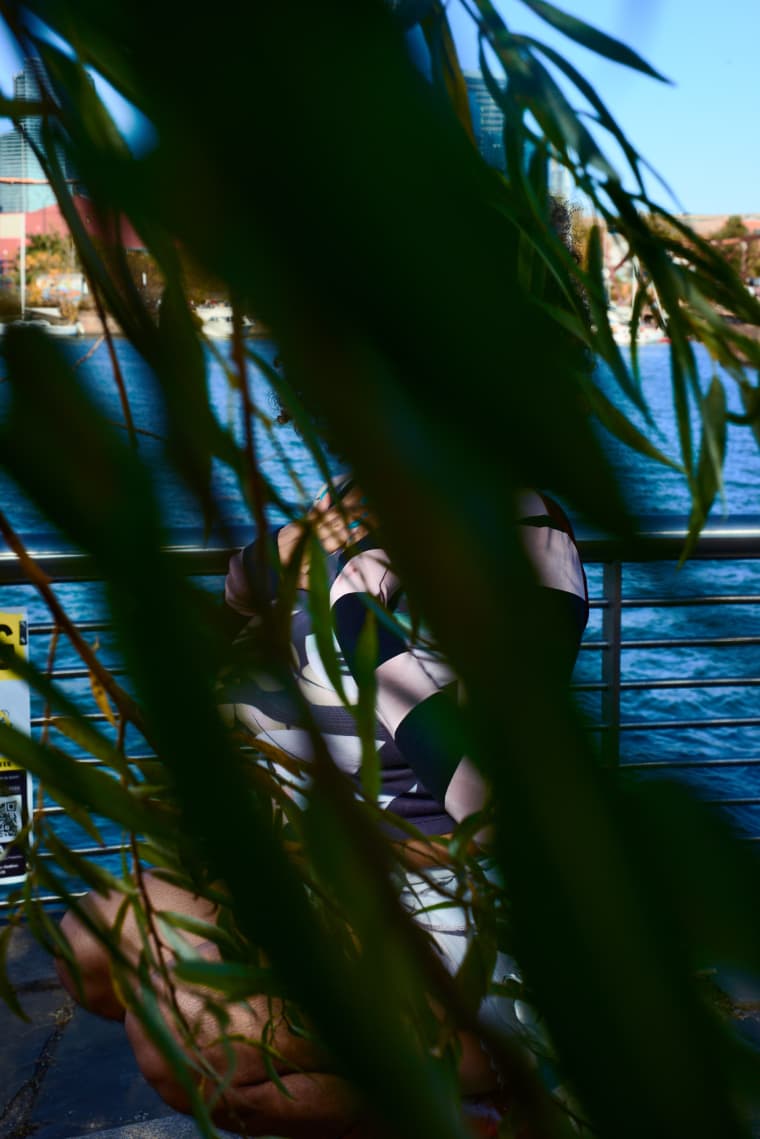
the mind is a miracle opens with “3,” which is basically a minute of piano and guitar surrounded by field recordings: birds, a car horn, flowing water, muffled speech. How did you select those sounds?
I just be having fun in the studio, listening to the stereo fields and imagining where things should go — certain colors, certain gestures. I just like to make sounds, and collages are fun. I sampled the intro to our live set in there; that’s me playing tuning forks and looping them.
How did you approach that intro and the many transitional interludes on this album?
When I’m making transitions, I have bounces of the tracks already done, and I put them all into Ableton and play with what can happen in the spaces between them. I love cohesive records that go start to finish, so maybe I’ll always do it that way, but for my next record, I’m on my pop shit; no more of these emo transitions.
“People with mental health diagnoses sometimes don’t make it out or aren’t able to care for themselves, so you see them on the train. I think about that a lot.”
My favorite transition on this record is between “multi” and “soupy,” where it sounds like you’re free associating.
I was actually pulling from the Deck of Character, and I pulled Sunken Ship, Smoke, Unicorn, and Club. I was in the studio with my friend Noah, and he was asking me what I pulled, and when I said “Club,” he said “Club.”
“soupy” takes us to the club. This album has a lot to do with healing and regrowth, so I’m assuming you’ve done some healing at the club. What’s your experience been of growth in chaotic spaces like the club versus in solitude or in a small community?
All are necessary. There’s a lot of work to do on your own, but there’s a lot to be felt in spaces with other people, too. I love clubbing and celebrating life and feeling gratitude on the dance floor; it’s one of my favorite feelings. It’s still an introspective place for me, though. I’m not looking at anyone. I’m not thinking about anyone else. I’m just listening to the music, zoning out, praising God.
Do you still go to church?
No, but I love God for sure. I definitely feel connected to this earth and that my soul’s on a journey of some sort.
To me, “alright!” is the happiest song on the mind is a miracle.
I wrote that song in the mental hospital. It was acapella, and I recorded so many versions of it, but it finally landed when I added bass to it. I was so blown away when I heard it on [big] speakers. It made me feel so fucking good as an artist, as a producer. That’s exactly the kind of song I want to make, and I made it. It’s my favorite track on the record.
It’s wild how divorced a listener’s interpretation of a song can be from the context in which it was made. Were you feeling at all hopeful when you made that song in the hospital that you’d turned a corner?
I just had that melody in my head, and it all flowed out. I had a pencil, paper, and free time, and it came so fucking easy. I was actually pretty calm when I wrote that song; I’d just woken up from three days of sleeping.
I shut down, but I’m better now, and I’m trying to release music and make income and have stable housing like every other native New Yorker I know. Some people like to be private with this stuff because it’s stigmatizing; people treat you different when they find out you’re mentally ill. I can’t even believe that I’m loved. It’s really hard to feel lovable.
“planetary” is a great track title because that song feels like a signal from another world, transmitted onto this album. It’s got such a striking sound, and I wanted it to last longer so I could stay in its orbit.
I think it’s one of the strongest songs I’ve ever written. It makes me emotional, but I love singing it. I know it’s super short, but I love short songs; that’s my bag. I never want to write a second verse because nothing’s gonna be better than the first impression. I’m an it-is-what-it-is-type bitch.
You end on “Born With Power,” which is one of the album’s longest tracks. You called it an anti-capitalist banger in a press release. Are there other anti-capitalist bangers that inspire you?
I don’t listen to music like that; I listen to the same 10 songs. Right now, I’m listening to “Floodgate” by Nelly Furtado over and over and fantasizing about my life. I’m obsessed with that song. I don’t know what she put in it, but I’m not able to listen to anything else. I don’t know, bro. I just love making music and riding my bike. That’s it.
duendita will play songs from the mind is a miracle with a vocal trio and a harp accompanist at Café Erzulie in Brooklyn on November 10 and 11.

